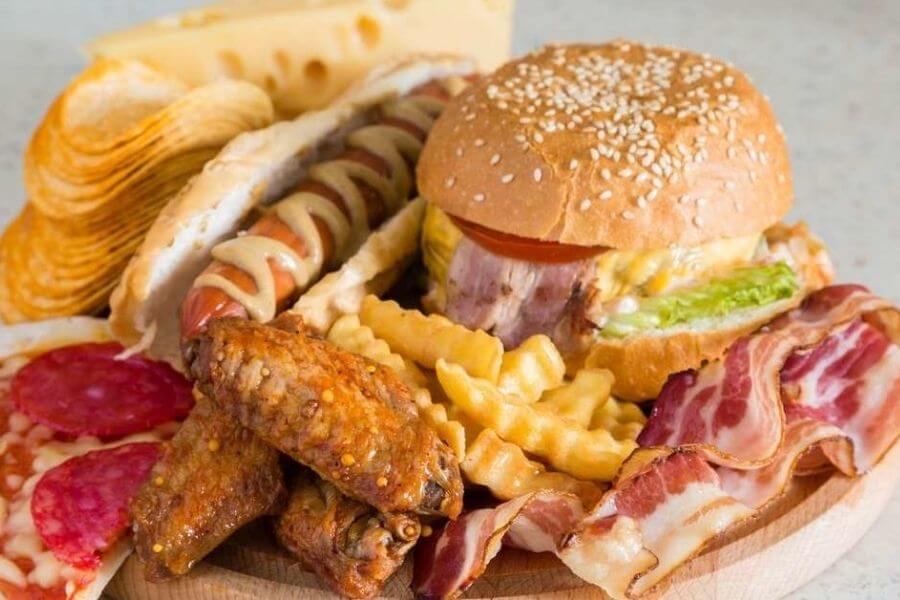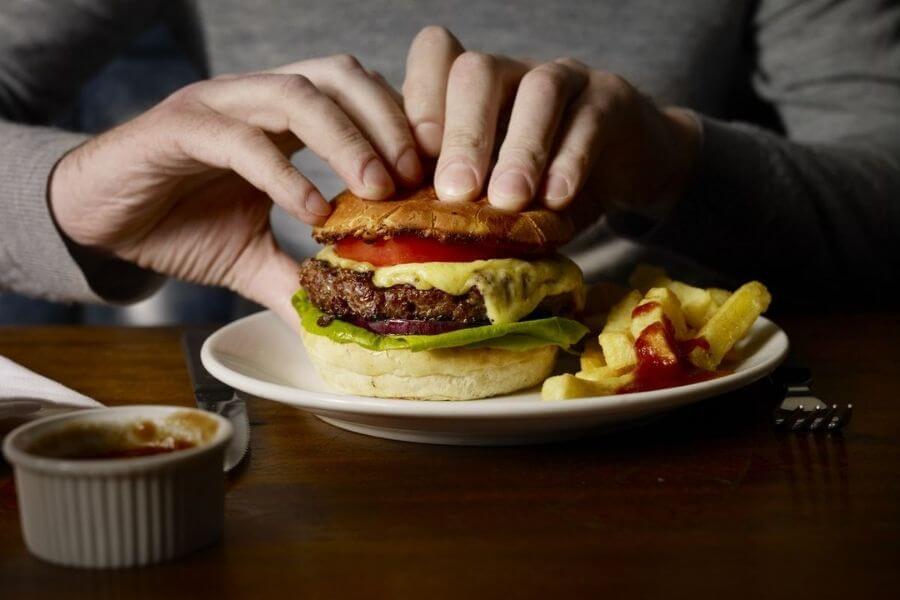Food Institute’s analysis of data reveals that millennials alone spend 45 % of their food budget on junk foods or eating out. Also, the average Americans now spend half their food budget on restaurant food. The issue is junk food has gone global and is easily accessible and convenient too. But the term ‘junk’ you shouldn’t forget. Also, there are many unhealthy effects of eating junk food on your body if you consume it often.
What Is Junk Food?

Junk food is a type of food that contribute loads of calories but little nutritional value. It’s inexpensive to buy and unhealthy to eat. These items are mainly processed, manufactured, have loads of sugars, salt, and other ingredients that can adversely affect your health.
Other sources state that junk foods are processed foods contributing to high calories, but that is considered a broad umbrella. They are prepared in a way that they look quite appealing and are quite mood-booster. So, you are automatically programmed to ask for more.
But the concept of “junk food” is subjective. You can say pizza is junk food, for example. Since it is loaded with veggies and protein-rich stuff on the top, I believe it might be a good source of nutrients. Instead of refined flour pizzas, if you try to include the whole wheat flour with thin crusts, I’d say pizza completely exits the junk food domain.
All fast foods are not junk. Like a salad might be regarded as fast food but is healthy without salads dressings. Foods like burgers, pizza, sandwiches may alternate between junk and healthy foods depending on the type of ingredients used and the process of manufacturing.
Examples Of Junk Foods
- sugary drinks
- sugary bars
- sugary cereals
- canned fruit in sugar syrup
- processed salted vegetables
- refined flour
- baked beans in a sugar sauce
- processed eggs with trans fats
- processed cheese, bologna, salami, chicken, turkey loa
- pastries
- cookies
- cakes
- oils like soybean oils
- sports sugary drinks
- creamers in coffee
- sugarfree jams
- diet cokes soda drinks
Unhealthy Effects Of Eating Junk Food
The American Heart Association states that some common unhealthy foods are highly processed and are deceptively inexpensive to buy and eat. It has recommended consuming no more than 1,500 milligrams of sodium per day, carefully choosing refined and processed foods, along with avoiding sodium from the most common salty foods. It includes bread, cured meats, pizza, burritos, soups, and sandwiches. For those without heart conditions, the American Heart Association recommends no more than 2,300 milligrams of sodium per day.
1. Effects On Health

Frequent consumption of junk foods is thought to be linked with being overweight, abdominal fat gain, impaired insulin, glucose homeostasis, etc. Higher fast food consumption may also increase the risk of diabetes and cardiovascular diseases.
2. Effects On Memory

In 2011, a study published in the American Journal of Clinical Nutrition showed that healthy people who ate junk food for five days performed poorly on cognitive skills. High sugary and fatty diet may suppress the activity of a brain peptide called BDNF (brain-derived neurotrophic factor); it helps with learning and memory formation. The brain contains synapses that are responsible for learning and memory, but if you consume many calories, it can interfere with the healthy functioning of these synapses.
3. Effects On Insulin Level

Insulin, a hormone produced by the pancreas, helps regulate glucose to fuel the body. But it is also produced in the brain where it helps in carrying signals between nerve cells and forming memories. A study conducted at a recognized University shows that too much fatty food and sweetened products might increase the insulin levels in the body.
4. Lessens The Ability To Control Appetite

Fried and processed foods contain trans fats. When consumed in excess, it may send mixed signals to the brain, making it difficult to process what you are eating and how hungry you are. It is probably why you end up overeating, leading to an increased risk of obesity.
5. Depression

The University of Montreal conducted a study on mice, feeding them with junk foods. The results showed that they suffered from withdrawal symptoms after discontinuing their diet. In humans, these withdrawal symptoms can bring about the inability to deal with stress, depression, and eventually, you might consume these foods to comfort yourself.
6. Impatient And Causes Uncontrollable Cravings

Sugary cakes or products like doughnuts may temporarily spike your blood sugar levels, making you feel happy, but as soon as they return to normal, you are left feeling more irritating. Fast food is loaded with refined carbohydrates, which cause your blood sugar levels to fluctuate rapidly. If your sugar levels dropdown to a deficient level, it can cause anxiety, confusion, etc. It also leads to the imbalance of hormones such as leptin and serotonin, causing food cravings.
7. Effects On The Respiratory System

Calories from junk foods can cause weight gain and obesity if you consume regularly. Obesity increases your risk for respiratory problems, like asthma and shortness of breath. This extra weight gain puts pressure on your lungs, leading to the difficulty in breathing.
8. Affects The Central Nervous System

Fast food may satisfy hunger for a short duration. People who eat fast food and processed pastries are 51 percent more likely to develop depression. Consuming junk food more often can lead to detrimental effects on your body and brain.
9. On Skin, Hair, Nails

The foods you eat can change your skin’s appearance, but it might not be the foods you suspect. Chocolate and greasy foods have always been blamed for acne breakouts, but according to the Mayo Clinic, it’s carbohydrates that lead to blood sugar spikes, which may trigger acne. According to one study, children and adolescents who eat fast food at least three times a week are also more likely to develop a skin condition eczema.
10. On The Skeletal System (Bones)

Junk foods can increase the secretion of acids in your mouth. These acids can break down tooth enamel. As tooth enamel disappears, bacterial infection happens, and cavities might occur. It also affects the bone density in your body with an increased risk of brittle bones.
Conclusion
My suggestion is you can try and limit the consumption of junk foods to once in 15 days. Try to opt for whole-grains foodstuff, less salty and sugary items, preferably less processed and packaged items. Hence, eat healthy foods that structure your body and promote its growth. Practice healthy living!







